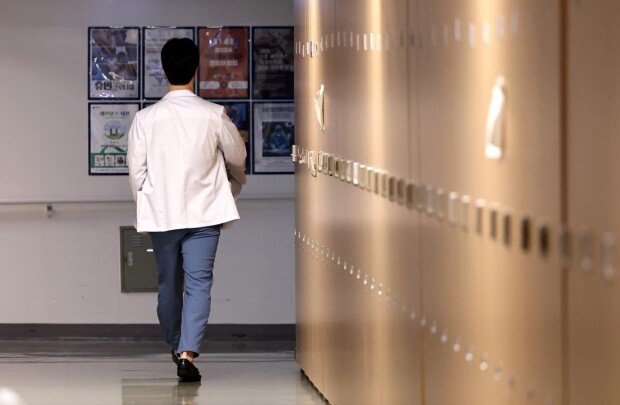Hospitals start recruiting new medical residents but very few applicants
Hospitals start recruiting new medical residents but very few applicants
Posted July. 23, 2024 09:17,
Updated July. 23, 2024 09:17

Recruitment for new medical residents (including interns) who will begin training in September started on July 22 but saw few applicants. Many medical professors have refused to train medical residents, who are giving up their training and becoming private practitioners.
Most of the 211 teaching hospitals across Korea started medical resident recruitment for the second half of the year on July 22. Training hospitals applied for 7,707 seats,
including the vacant positions of 7,648 resigned residents, to the Training Environment Evaluation Committee under the Ministry of Health and Welfare but few residents applied on this day.
A growing number of medical professors are opposing the government and hospital management's policy of filling the positions of residents who have resigned.
On July 22, the Emergency Response Committee of Yonsei University Medical School professors, whose teaching hospitals include Severance Hospital, issued a statement saying, "The hospital has applied for new seats for the second half of the year, but these positions belong to Severance hospital residents. We will leave these seats empty so that (the residents) can return confidently and safely, and provide support to do so.” The committee made it clear that they “will not accept new medical residents as students or colleagues even if they are intimidated and forced by the government to hire.” Professors in the Department of Radiology at the Catholic Central Medical Center, which has Seoul St. Mary's Hospital as its training hospital, also announced on July 20 that they “will not provide any medical training or guidance."
Some say that new applicants may be eliminated during the screening process. “It is not mandatory to fill the number of applicants announced. Applicants may not be hired if they do not meet requirements,” said a professor of essential sciences at a university hospital in Seoul. An official from one of the five major hospitals also said, “We applied for as many seats as possible because the government said they might reduce the student quota if the residents that left do not resign. Still, it would be difficult for the government to force hospitals to recruit a certain number of applicants.”
Many resigned medical residents are relocating to primary and secondary hospitals instead of returning to university hospitals. Instead of accepting the government’s proposed offer and returning to hospitals, most have decided to find new jobs until returning next year. “I will work at a nursing hospital run by a senior colleague for a few months and monitor the situation,” said a former resident who resigned from his third-year residency at a university hospital in the Seoul metropolitan area.
Sung-Min Park min@donga.com




![17년 망명 끝에, 부모 원수 내쫓고 집권[지금, 이 사람]](https://dimg.donga.com/c/138/175/90/1/wps/NEWS/IMAGE/2026/02/18/133376197.3.jpg)

![[속보]美대법원, 트럼프의 국가별 상호관세 ‘위법’ 판결](https://dimg.donga.com/c/138/175/90/1/wps/NEWS/IMAGE/2026/02/21/133392930.1.jpg)
